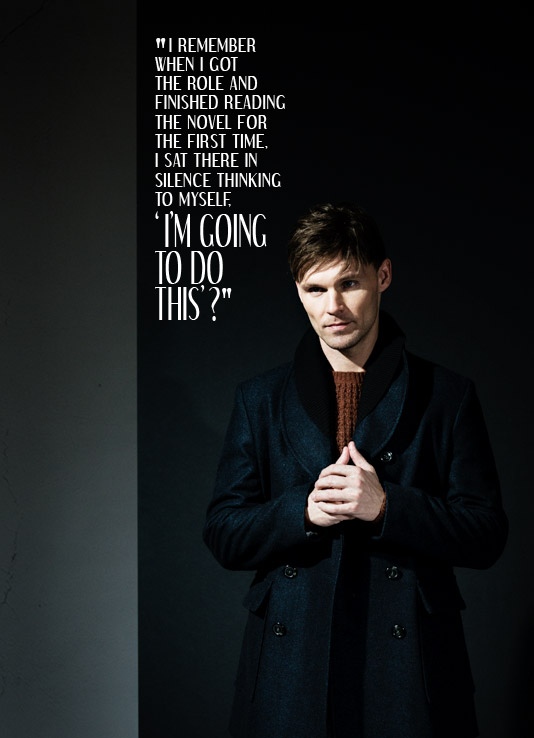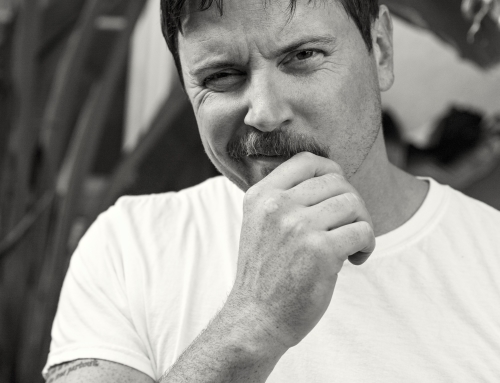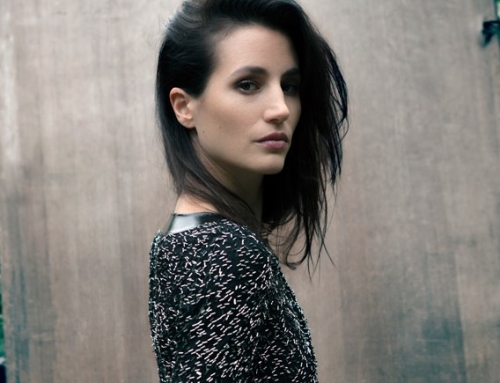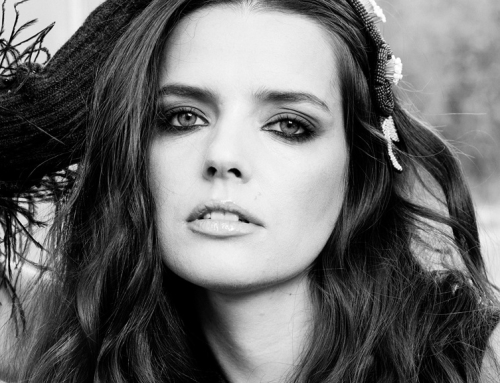Lester Ballard is not your average man. A social outcast, run off his land by the townsfolk, ostracization forces Ballard to the limits of human survival as he roams the Tennessee hill country. Isolated and dispossessed, Lester is boiled to his base, while evolution is eclipsed by depravity. With instinct crowned king, Child of God asks: is Lester’s instinct human or animal?
Based on Cormac McCarthy’s acclaimed novel of the same name, James Franco’s (As I Lay Dying) latest directorial project — in theatres early 2014 — unravels human nature in the form of the execrable Lester, challenging audiences to look away from what may be underneath the layers of cultivated social fidelity they perceive as their own humanity. He is, as the film’s narrator declares, “a child of God much like yourself perhaps.”
“I remember when I got the role and finished reading the novel for the first time, I sat there in silence thinking to myself, ‘I’m going to do this’?” shares Scott Haze, who stars as the film’s crude protagonist. “Then I just started doing what it would take to achieve what I wanted to accomplish with the role. I prepared for almost a year before we shot the film. I went as far as to move to Sevierville, Tennessee, the actual location where the novel is set. I lived in isolation for months; I lived in a cave, I lost weight by living on apples and a piece of fish a day. I did all this and more, so that when I arrived on set I was beyond prepared. I was ready.”
Based on the critical acclaim (including some noteworthy Oscar-buzz) his performance has been garnering since Child of God’s world premiere in competition at the 70th Venice Film Festival, it’s safe to conclude Haze’s unconventional and exceptional efforts were not in vain. The actor has since gone on to win Breakthrough Performer at the Hamptons International Film Festival, as well as earning a spot on Variety magazine’s “10 Actors to Watch” list back in October of this year, ranked alongside actor Oscar Isaac (Inside Llewyn Davis), French actress Lea Seydoux (Blue is the Warmest Colour) and 12 Years a Slave’s breakout actress, Lupita Nyong’o.
Watching Haze on screen, it’s immediately apparent that he is an actor’s actor — in other words, dauntingly good. It’s no wonder he should be part of Franco’s go-to troupe. One of a group that includes Danny McBride (Eastbound & Down) and Tim Blake Nelson (Lincoln), Haze shares the screen with the actors in Franco’s most recent films As I Lay Dying (2013), in which he’s cast as the duplicitous Skeet McGowan, the newly completed Bukowski (2014) and next year’s role as the emotionally detached Jason Compson in The Sound and the Fury.
Outside of his many acting roles, Haze keeps busy with tending to his duties as the Artistic Director of The Sherry Theatre in Los Angeles, a passion project that began back in 2005. “I had the vision for my owning my own theatre while I was sitting in my dorm room in Austin, Texas one night watching the film, Looking for Richard, which Al Pacino directed,” explains Haze. “I said to myself, one day I want to have my own theatre where I can go and do that. I just wanted a place where I [could] have a vision and execute it.”
And so, Haze ventured over to North Hollywood — which at the time was very different than the vibrant arts community it is today — took over an old TV/VCR shop and turned it into The Sherry Theatre, named after his mother, whom he credits, along with his father who passed before the theatre was erected, for helping make a reality of his dream. “I will forever have so much appreciation for her and for my group of friends who poured their hearts and souls into the actual construction of the theatre,” the actor gushes.
Now a prized cultural outpost, The Sherry Theatre plays host to more than just stage production; it is a platform for film, dance, art and as of this year, the 120 Hour Film Festival, which invites filmmakers to complete a short (writing the script, casting, shooting and post production) within 120 hours flat. That’s when it’s not being used by Haze to stage his latest play — “I’m always writing one” — or loaned out to friends including Franco, who shot a Sundance-bound short called Interior. Leather Bar. at the theatre just this year.

If this, on top of his acting jobs wasn’t already enough, Haze is also gearing up to fly over to Africa this December to direct a documentary about the life of Charles Mulli. A man revered as “Father to the Fatherless,” Mulli is a one time Kenyan business tycoon turned Christian aid worker and founder of Mully Children’s Family, the largest children’s rescue, rehabilitation and development organization in Africa.
Stacking up on extra credit, Scott Haze has claimed his seat at the front of the class with Hollywood’s intelligentsia, right next to friend Franco. Below, Haze talks about exploring the dark crevices of Lester Ballard’s mind, his brotherhood with James Franco and his take on the trajectory of his rapidly rising star.

I see you’ve been doing the international festival circuit this year with Child of God. Amongst all the festivals and the premieres you’ve been to with the film, is there one that especially stands out?
The World Premiere at the 70th Venice Film Festival in Italy. It was a dream come true experience for me in my life. There is something magical about Venice. I had heard all the stories about the city, but from the moment I landed, I was blown away by its beauty and charm. The parties, the events, the people, the experiences, it was all perfect. There was one point, at the after-party of our film’s premiere, I found myself in a small alleyway outside the party talking with Dwayne Wade about my film. Being a huge basketball fan, I thought who better to close off the night talking with; the whole thing was a dream come true. I cherish that city and that film festival. I couldn’t have picked a more magical place to share this film with the world for the first time.
A chat with Dwayne Wade and a world premiere, that is a pretty good night! The film has been garnering very positive reviews from critics and festival goers. How do you expect it will do in major theatres, do you think it will impress mainstream audiences as well?
The positive reviews from the critics and festival goers is a beautiful thing. When you put so much time and effort into something, it’s the greatest feeling in the world to have it appreciated. Any actor who says different is lying. I know it’s a film that leaves an imprint on the viewer, something that they can’t shake off and have to think about, but I think that’s a good thing, and the goal in a sense. I think this film has the same spirit of some of the old films that were released and people started to slowly latch onto, like Taxi Driver when that movie came out in the early ’70s. That film had its share of controversy, and had a similar mold in it’s a story that follows the journey of one man, touching on some dark aspects of life, but it found its audience I’d say, that would be my hope for our film.
There’s already Oscar buzz around your performance, and you recently won “Breakout Performance” at the Hamptons International Film Festival. Did you anticipate at all how your latest film might catapult you into the spotlight?
I’m completely humbled by anything of the sort being mentioned. I have heard things, but try not to think about them. There are so many politics, and factors and variables surrounding that stuff that actors have no control over that. It’s a nightmare to even think about such things because it’s pointless. It’s flattering though, and I really didn’t know what was going to happen, I just knew I got to play a dream role. The type of role that any actor dreams to get. They really are few and far between, and I was so blessed to be able to have this opportunity.
Cormac McCarthy’s Child of God is an acclaimed work of literature; it’s truly unique. Were you already a fan of the author’s writing previous to the film?
I fell in love with his writing after watching the film No Country for Old Men. I worked backwards with McCarthy, falling in love with that film and then exploring his works. Child of God is my favorite, but I’m probably a little biased.
You do an incredible job at really inhabiting the body of Lester Ballard. Was it challenging to relate to him at first?
It was and it wasn’t. In the story, Lester’s father kills himself, he loses his home as his land is auctioned off and sold to a new owner, he’s ostracized from society, made fun of, and nobody around him showed him any love or compassion for his circumstances. I could relate to many of these elements, as there have been times in my life when I felt like I didn’t fit in or I was made fun of as a kid and bullied and felt alone. I had felt these things before. I also had my father die when I was young. Now, there are many things I couldn’t relate to, and that’s why I went to the lengths I did to get ready for Lester. There is no way I feel I could have prepared for this role living in Los Angeles. It came to a point where my moving to Sevierville, Tennessee became 100% necessary in my mind, and so did the fact I was going to stay in that world until I finished the movie.
Lester’s isn’t a headspace that would be easy to shake off at the end of each day. What element of the character did you find to be most difficult to capture?
When I first arrived to Tennessee, I spent the first few weeks taking my camera around the city with my friend who was the town historian of Sevierville, interviewing any and everybody who still had the authentic accent. I really wanted to get Lester’s voice. The accent is so unique to that part of the East Tennessee Hills, and it’s changed over the years, so I had to find the people who still had it. I was blessed by finding two people I patterned and then molded Lester’s voice into what you see in the film from that authentic launching pad.
next page >>











